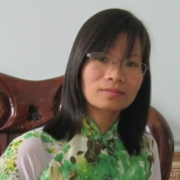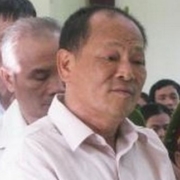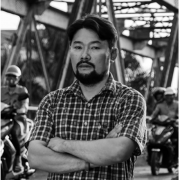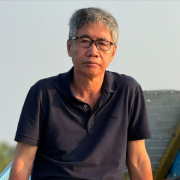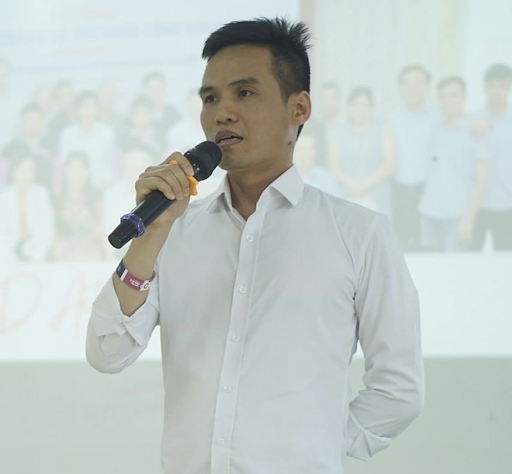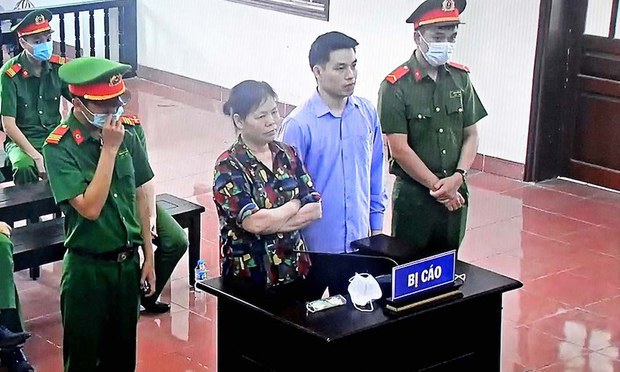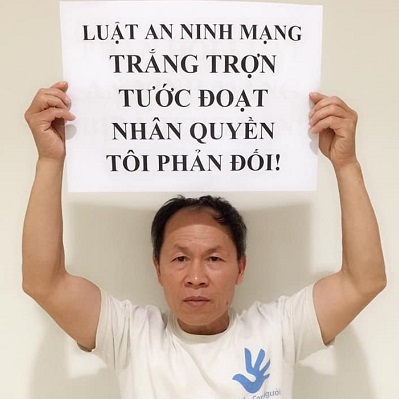Nguyen Thuy Hanh, a Champion of the Families of Political Prisoners, Faces Mental Health Issues and Indefinite Detention a Year After Her Arrest
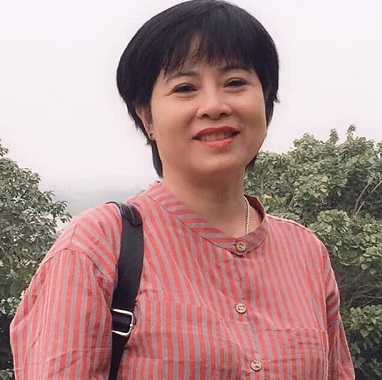
Nguyen Thuy Hanh
It has now been over 13 months since police in Hanoi arrested Nguyen Thuy Hanh, a campaigner for the families of political prisoners. Hanh was detained at her home in April 2021 after the authorities charged her with violating Article 117 of the 2015 Criminal Code, an article commonly used to lock-up vocal critics of the Vietnamese government. While the article only contains vague prohibitions against spreading “distorted” and “fabricated” information to “oppose” the government, the penalty for doing so is clear. If convicted, Hanh could face up to 20 years in prison.
Hanh’s arrest is likely due to her management of the 50k Fund, which raised and distributed charitable donations to the families of political prisoners. Hanh may have crossed a red line with security officials after she attempted to give money to the family of a politically controversial rural community leader. Le Dinh Kinh, 84, was killed by police following a long-running land dispute between the government and residents of Dong Tam, a village on the outskirts of Hanoi. The dispute culminated in a violent skirmish between villagers and the police in January 2020. Kinh, as well as three police officers, were killed in the clash. After collecting money for Kinh’s family, Hanh’s bank account was frozen at the request of security officials.
Hanh was not the only activist arrested after supporting residents of the village. The land rights activists Trinh Ba Phuong, Trinh Ba Tu, Can Thi Theu and Nguyen Thi Tam were all arrested in 2020 for their active support of the Dong Tam villagers. The award-winning writer and activist Pham Doan Trang was arrested just one month after co-authoring an investigative report into the incident. It is worrisome that judges convicted all five activists and handed them lengthy prison sentences ranging from six to 10 years each. It is probable that a similar fate awaits Hanh, who is likely to face trial later this year.
It is unclear why the decision was made to arrest Hanh in April 2021, though she had long been on the radar of State security officials. Harassment against Hanh began after she opened the 50K Fund in April 2018. The following year, a state-owned TV channel identified Hanh as a “subversive” in a series of programs aimed at discrediting activists. Others named in the program, such as Pham Doan Trang and Le Dung Vova, have also since been arrested.
For Hanh, the harsh realities of awaiting trial for political crimes have been hard to bear. After being diagnosed with severe depression, she was transferred to a mental health hospital earlier this month. It has been alleged that attempts to deliver medication to her (Hanh suffered from depression prior to her arrest) were repeatedly denied. Refusing to allow Hanh visitation rights is likely to have exacerbated the situation. It was only after her transfer to a hospital that Hanh’s husband was allowed to visit her, the first time anyone had been allowed to see her since her arrest. Thirteen months after her arrest, she still has not met with a lawyer.
Such treatment is typical of the Vietnamese government’s attitude towards political prisoners. Fellow Dong Tam campaigner Trinh Ba Phuong spent over a year in incommunicado detention before the authorities permitted him to see a lawyer. At his trial, which family members were prohibited from attending, Phuong told the judge that he had been repeatedly assaulted during his interrogation, a claim which fell upon deaf ears in the politically subservient courtroom.
Despite continuing to deny Hanh and many others their basic human rights, Vietnam is currently seeking reelection to the UN Human Rights Council. Some may hope that membership will nudge the Communist Party towards greater respect for human rights norms. This is unlikely to be the case. In 2020, Vietnam signed a free trade deal with the European Union, the EVFTA. As part of the deal, Vietnam agreed to allow independent watchdogs to monitor its commitments to labor rights and the environment. The regime belatedly allowed one to form, but only after it arrested members with a track record of criticizing government policy.
While government officials prepare for membership of the Council, Hanh continues to await trial without seeing a lawyer or her family. Her trial will not be the end of her suffering. Instead, Hanh will be convicted and sentenced to years in prison. After many months, and perhaps several years of waiting, it will take the court just hours to convict her, for the verdict was decided long ago. When casting their votes in October, UN member states must remember the regime’s treatment of Hanh, and the long spell behind bars that awaits her.
© 2022 The 88 Project


